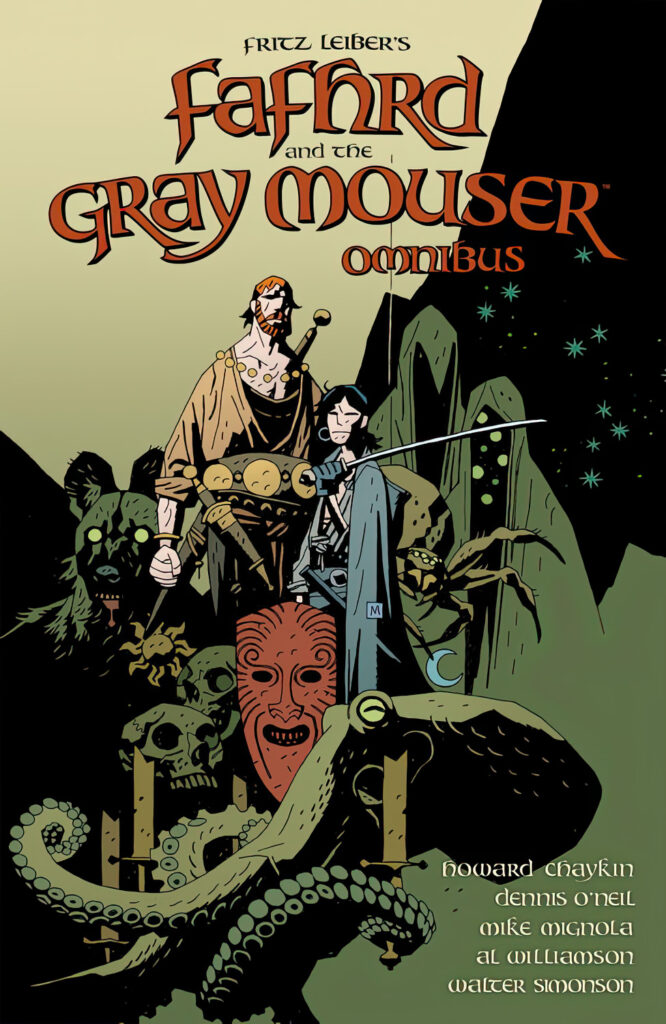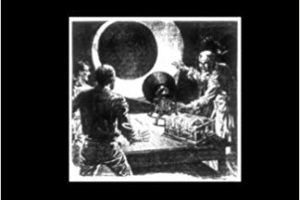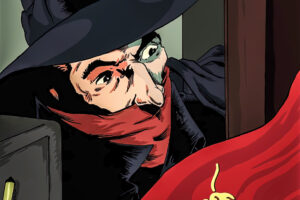 This series first appeared in Unknown in 1939, with subsequent stories appearing in several other magazines and other sources into the 1980s, later collected into several book. But they certainly first appeared in the pulp sf magazines.
This series first appeared in Unknown in 1939, with subsequent stories appearing in several other magazines and other sources into the 1980s, later collected into several book. But they certainly first appeared in the pulp sf magazines.
Fafhrd is a large, 7-foot barbarian swordsman, loosely based on Leiber himself. The Gray Mouser is a small thief, a former magician’s apprentice who knows a little magic, and a swordsman. He is loosely based on a friend of Leiber’s. Their adventures are set in city of Lankhmar on the world of Newhon (basically “no when” backwards). Technology is between iron age and medieval.
Now, to be honest, as I’m not a big fan of sword and sorcery, while I am well aware of these characters, I have not read them. But I have read the comic adaptions. And thankfully Dark Horse Comics has recently put out an omnibus collection of all of their comic book stories, which consists of two sets.
First off, in the 1970s, the two characters appeared in an issue of Wonder Woman. Later, as part of the “DC Explosion” when DC started to add a wider range of genres, they launched Sword of Sorcery, which featured the two. Art was mainly by Howard Chaykin, with writing by Denny O’Neil. The title lasted five issues, and later Dark Horse would reprint it in trade paperback. Four stories are adaptions, the rest originals. I kind of wish they had included the Wonder Woman story for completeness. Oh, well.
Later, in 1991, Marvel‘s Epic Comics line did a four-issue miniseries adaption with the characters, this time with Howard Chaykin writing the scripts and art by Mike Mignola, best known for Hellboy. All stories are adapted from Leiber’s works, though only one was also done in the DC series. But it’s always interesting to see how such stories compare. Dark Horse would also later reprint this in trade.
And of course, this omnibus volume collects both volumes into one. As I missed getting those trades, this is a good deal.
For me, the comic adaptions are sometimes an easier introduction to certain stories and characters. I have never read a Conan prose story, but have read many comics. So maybe someday I will embark on reading the original prose stories of these as well.




Your comments